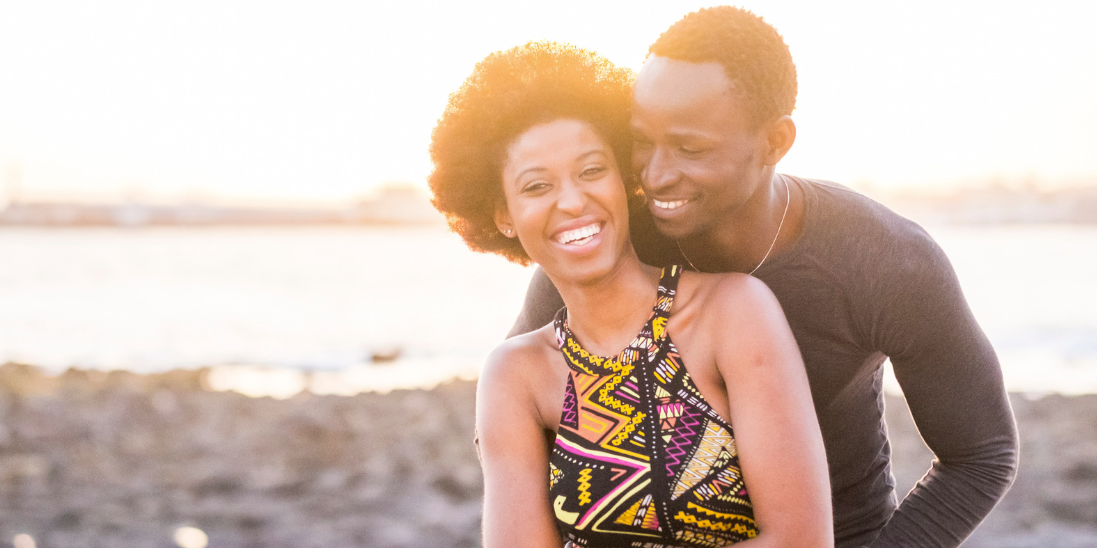
People that are in love will go far when it come to being in a relationship and this can be exciting but what happens if you lose yourself along the way? In the honeymoon phase of the relationship, things will be fun and exciting, and you will learn to enjoy what your partner enjoys and vice versa. This is the part of the relationship where you are forming a new connection, and you are making your relationship stronger.
You aren’t your partner didn’t get together as half people though and you are both whole people. This means that you had your own goals and your own values and your own dreams. Before you ever met each other, you had your own life. After you started dating, you might have decided that you should put your own life aside and embrace your partner more. This means that you might have gotten to the point where you lost your identity.
Why Do People Forget Themselves in Love?
There are many reasons that you might forget yourself in love including your attachment style. If you are someone with an anxious attachment style, you might be worried about your partner leaving you and abandoning you. This is one reason you might be constantly asking them to validate you.
If you have this kind of attachment style, you will put your partner first and you will do whatever it takes to please them so that they don’t leave you.
Another reason that people forget themselves is that they have low self-esteem. They might find that they are so worried about being alone that they will do whatever it takes not to lose their partner.
- Being Yourself
Being yourself is important when you are alone or when you are with someone. A relationship isn’t about you being just about your partner but its about you and your partner coming together as a team. You have to learn to be vulnerable with yourself and your partner. If you can see yourself as your own person and you see that he still loves you, you will feel closer to him and you will be more connected.
- Working On Yourself
It is important that you never stop working on yourself rather single or in a relationship. You and your partner should both be focusing on your own lives while you learn to be stronger together. Here is how to never lose yourself in love!
- Have Alone Time
It is important to take time alone for you and your partner. This means go out with your friends or do your own hobbies. You can have space from your partner, and you can give them space. You can figure out what you want in your life as you have alone time. Doing this also helps you to appreciate your partner more.
If you have a hard time doing this, you need to build up your self-esteem because you can be calm and happy by yourself.
- Take Time for Those You Love
Go out with those that you love. Don’t give up your circle of friends just because you’re dating someone. Spend time with your friends and family and not just with your partners friends. Have fun with people and do things with those that aren’t your partner.
- Pick Up Hobbies
Find some hobbies that you love that make you happy and make you calm. You can do this to remember that you are your own person. Hobbies bring happiness and you can even share some of your hobbies with your partner but have some of your own as well.
- Finances
Make sure that you have a financial goal and that you don’t fall into a money trap. Know where your finances are and what goals you have. Even if you don’t combine your finances with your partner, figuring out what you want in the future is important.
Finances can lead to fights and arguing, and it can even cause relationships to come to an end. Make sure that you have a goal before you ever get serious.
- Travel
Write down some travel goals and spend some time going places that you love or places that you’ve wanted to visit. You can help your mental health by traveling. Doing this helps you to be more creative. Pick a dream vacation and take it.
- Have Fun!
Have fun and enjoy your life. Do things that make you get rid of stress and anxiety. Having fun can take away your sadness and can improve your mood and make you have more self-worth. Doing this allows you to have more connections with yourself and with your partner.
- Go In Nature
Go out in nature and enjoy the smells and the sounds. Go hiking or just sit out by a tree.
- Be Mindful
Make sure that you’re being mindful of what you are saying and what you’re thinking. Pay attention to what you’re feeling and what you’re thinking. Do this for about five minutes a day and build your relationship with yourself.
- Make a Routine
Focusing on what you want to do in your life can be hard if you don’t have a routine. Instead of constantly focusing on your partner, you need to set a routine so that you can get things done that need to be done.
Keeping your routine helps you to honor your time and your thoughts. It can help you to feel better and more accomplished.
- Self-Care
Self-care doesn’t mean you’re selfish, it means that you care about yourself. You need to make sure that you are being healthy and you’re doing things that keep you that way. Get enough exercise and do things that give your mind, body, and soul relaxation.
- Know Your Values and Morals
Don’t forget the values and morals that you have. Pay attention to your actions and as you do you will see that you can focus on your own self-worth. Focus on your own values first before you focus on your partners values. Don’t be in a relationship that leaves you feeling stressed because you didn’t cover your values right at the beginning.
- Write it Down
Write down what you are feeling and thinking and write things that you are thankful for. By keeping a journal, you can see what you need in your mind, body, and soul. Your mind sometimes needs to slow down and the best tool for making that happen is by journaling.
- Know Your Emotions
Your emotions aren’t good or bad, they just are. You need to learn to communicate what you’re feeling. If you are upset, talk about it, and then let it go. Getting angry is a normal emotions and if you feel this, talk to your partner.
By learning to talk about your feelings, you can learn to figure out where they come from, and you can work through them.
- Get Creative
Find things to do that make you feel creative. Draw, paint, write something, sing or whatever inspires you. You can get rid of stress and anxiety by being creative and it helps you to feel more confident. Do whatever brings you enjoyment.
- Set Boundaries
Set boundaries for your overall wellbeing. Everyone should have boundaries and all relationships are better when there are boundaries. Make sure that your partner respects your boundaries and make sure that you stress that these are important for you.
- Love Your Job
Don’t just leave a job just because you’re in a relationship. It can be hard to be happy when you lose yourself in your relationship and it can cause you to give up on a career that you love. Don’t do this.
Find a job that you love and stay in it. Learn more about what your dreams are and use your skills to figure out how to love your job even more.
- Be Positive
When you have negative thoughts, try to become more positive. Focus on the good things that are going on in your life and work on positive self-talking. Each time you feel something negative about yourself, say something positive.
Learning to love yourself more can help you to have a happier life. If you need to talk to someone, talk to a therapist. You can even write down things that you need to work on in your personality and then work on those things.
- Forgive Yourself and Others
We all make mistakes, and this can cause lifelong guilt and pain. The best thing to do is to learn to forgive yourself and to move on. Your emotions are there to drive you but instead of letting them control you, take actions. Learn from your negative experiences and forgive yourself and others.
- Take Time Off
Take time off from electronics and from work. You can even take time off from your relationship if you need a break. If you feel stressed or tired, take a break and relax. Try yoga or go and get a massage to make your body feel better.
- Take a Relationship Break
Sometimes people need to take a break from their relationship to get their mind, body and soul balanced. This can help you to focus more on the relationship when you get back together. Being healthy in your mind will allow you to focus more on your partner later.
Taking a break doesn’t mean that you are free to go and have other relationships, this kind of break should only be taken if you and your partner talk about it and set rules and you both feel that it will better the relationship in the future.
Taking this step though can end your relationship permanently and you need to understand that this can happen. There is no real guarantee that if you take a break that you will get back together.
- Accepting Your Needs
Try some of the things above and accept that you have self-needs. You will need to feel confident and to not lose yourself in your relationship or at any time. If you want to focus on your career or you want to focus on other things in your life, talk to a therapist to help you to figure out how to prioritize these things.
- What to Tell Your Partner
Talk to your partner and tell them what your needs are. Tell them how you need to focus on yourself more and be open about what you’re feeling. Don’t fight with your partner but just bring up the things that you have been thinking about and what concerns you. Don’t blame your partner for what is going on but ask him to help you to get the things that you need.
You don’t want to change who you are just to be with someone and learning to embrace yourself and your needs more can help you to appreciate each other even more. As you focus on yourself and meet your needs, you will become a better person and a better partner.
Taking time to focus on your needs doesn’t mean that you aren’t going to focus on the relationship at the same time. It just needs that you need to put your own needs first sometimes.
Final Thoughts
Losing yourself in a relationship can make your life miserable and it can even bring an end to your relationship. Make sure that you learn to love yourself and that you learn to meet your own needs. Working on yourself can help you to work on your relationship and it can help you to be a better partner as you become stronger to the point where you can meet your own needs and the needs of your partner.






‘Travel’ as a form of self-discovery is an intriguing notion. It underscores the necessity for exploration—both externally in the world and internally within oneself, facilitating a more profound connection with one’s partner.
One cannot overstate the significance of boundaries as mentioned here. Establishing them not only fosters mutual respect but also preserves individual integrity within a relationship, ultimately enriching the bond between partners.
The exploration of identity within romantic relationships is indeed compelling. It raises questions about how individuals balance their personal growth with the dynamics of partnership, highlighting the importance of maintaining one’s individuality.
The discussion regarding attachment styles adds depth to our understanding of relational dynamics. It’s crucial to recognize how these styles influence behaviors, potentially leading to a loss of self in love.
‘Self-forgiveness’ as a theme presents an opportunity for personal growth beyond romantic contexts. Embracing our imperfections can lead to healthier relationships by promoting acceptance and understanding between partners.
‘Setting financial goals’ might seem mundane but proves critical in establishing stability within partnerships. Financial compatibility can mitigate conflicts, thereby allowing couples to focus on nurturing their relationship rather than managing crises.
‘Having fun’ is often overlooked in serious discussions about relationships. This article aptly highlights its importance; joy can serve as a foundation upon which deeper emotional connections are built.
‘Being mindful,’ as mentioned, is essential for emotional well-being. It allows individuals to navigate their feelings effectively while fostering open communication with their partner, thus enhancing relational quality.
This article effectively outlines the complexities inherent in love and personal identity. The emphasis on self-care and alone time resonates, suggesting that a healthy relationship requires both partners to nurture their own identities.